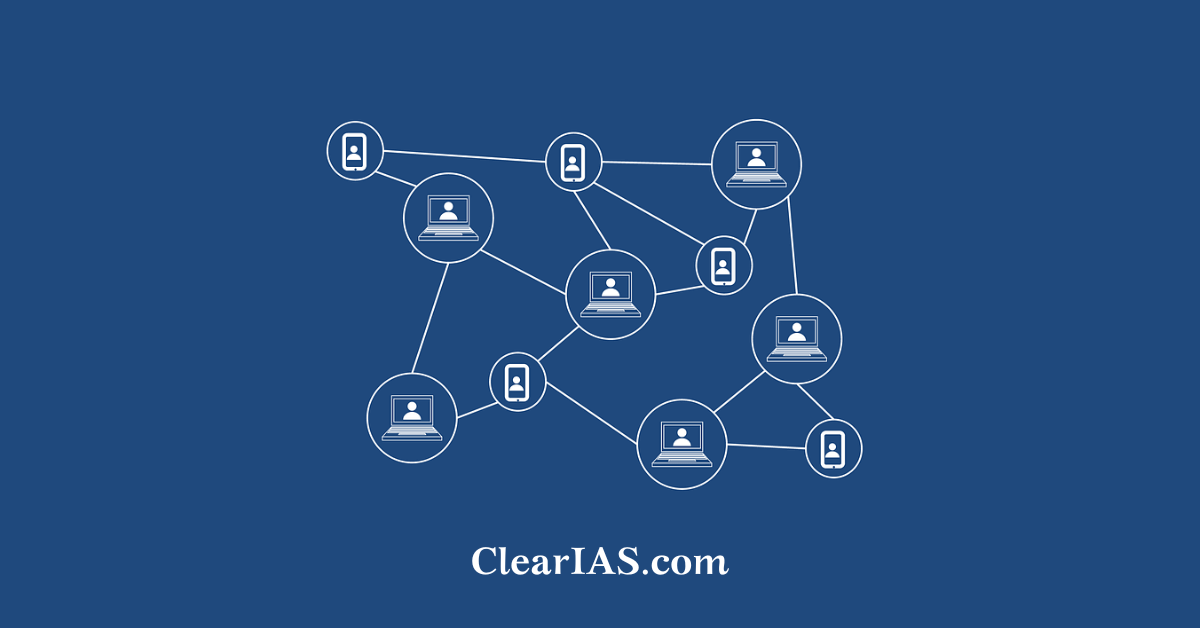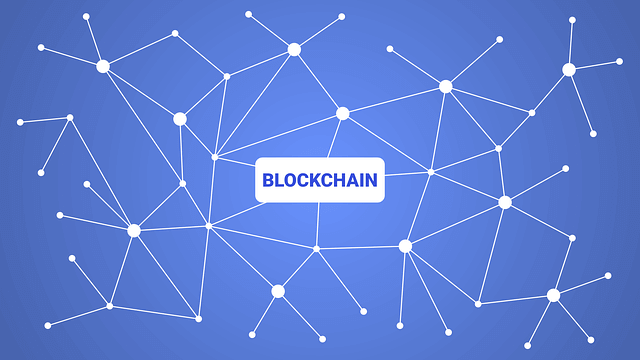
Today, Blockchain technology is disrupting almost all markets, changing the way we do our day-to-day business. Yes, blockchain technology is changing our world.
Let’s decode the latest buzzword – Blockchain Technology – in this post. Thank you for the excellent feedback on our earlier articles in this series – on Artificial Intelligence, Internet of Things (IoT), and Automation. Feel free to post your feedback on this article in the comment section at the post bottom.
Comparing Blockchain to an Excel Sheet
Imagine a Microsoft Excel Sheet file on your laptop with details of some transactions you made. You can call it a ledger.
Now, imagine that your Excel Sheet file is copied to hundreds of your friends’ computers, connected forming a network. The ledger in your laptop has become a distributed ledger.
Then imagine that this network of computers is designed with a technology to regularly update this Excel Sheet, whenever you or your friends update the ledger.
You now have a basic understanding of the blockchain!
What is a blockchain?
In simple terms, blockchain is a digital ledger.
Wondering what is a ledger?
A ledger is a book containing accounts to which debits and credits are posted from books of original entry.
A blockchain is a digitized, decentralized, public ledger. So simple, right?
Definition of Blockchain

The blockchain is an incorruptible digital ledger of transactions that can be programmed to record virtually everything of value.
Each list of records in a blockchain is called a block.
So a blockchain is a continuously growing list of records called blocks, which are linked and secured.
Who invented blockchain technology?
Blockchain Technology was invented by Satoshi Nakamoto in 2008 for use in the cryptocurrency bitcoin, as its public transaction ledger. Satoshi Nakamoto’s aim in creating the decentralized Bitcoin ledger—the blockchain—was to allow users to control their own money so that no third party, not even the government, would be able to access or monitor it.
The creator of Bitcoin, Satoshi, disappeared back in 2011, leaving behind open-source software that the users of Bitcoin could update and improve.
The invention of the blockchain for Bitcoin made it the first digital currency to solve the double spending problem without the need of a trusted central authority or central server.
The Bitcoin design has been the inspiration for other applications.
Internet Technology vs Blockchain Technology

In the 1990s, when internet technology (TCP/IP or HTTP) was in the native stages, email was the first major application. Later new applications like web browsers came. Websites became popular. People started using chat software like Skype. Now if you look at your mobile, see how many different applications are run using the Internet.
Similarly, when blockchain technology emerged, bitcoin was the first major application that used it. Other cryptocurrencies followed the trend. Now, blockchain technology is used in a variety of applications like security, online voting, etc.
Simply put, the Internet allows computers to exchange information; Blockchain allows computers to record information.
Both use a lot of computers (nodes).
The Digital Economy, Wikinomics is bold on the subject and reflects on Blockchain that:
The first generation of the digital revolution brought us the Internet of information. The second generation — powered by blockchain technology — is bringing us the Internet of value: a new platform to reshape the world of business and transform the old order of human affairs for the better.
Blockchain is a vast, global distributed ledger or database running on millions of devices and open to anyone, where not just information but anything of value — money, but also titles, deeds, identities, even votes — can be moved, stored and managed securely and privately. Trust is established through mass collaboration and clever code rather than by powerful intermediaries like governments and banks.
Technologies behind blockchain technology!

- Private Key Cryptography
- P2P Network (Peer-2-Peer)
- Program (the blockchain’s protocol)
What is the need for blockchain technology?
The blockchain is a mechanism to bring everyone to the highest degree of accountability. No more missed transactions, human or machine errors, or an exchange that was not done with the consent of the parties involved.
The most critical area where Blockchain helps is to guarantee the validity of a transaction by recording it not only on the main register but a connected distributed system of registers, all of which are connected through a secure validation mechanism.
Blockchain technology can find applications in the following areas in the future:
- Smart contracts – Any industry heavily reliant on contracts, such as insurance, financial institutions, real estate, construction, entertainment, and law, would benefit from blockchain’s indisputable way of updating, managing, tracking, and securing contracts. Smart contracts, those that are embedded with if/then statements and are executed without the involvement of an intermediary, also use blockchain technology.
- Supply chain management – Whenever value changes hands or the status of an asset changes, blockchain is ideally suited for managing the process.
- Asset protection – Whether you’re a musician who wants to ensure you get royalties when your music gets played or a property owner, blockchain technology can help you protect your assets by creating an indisputable record of real-time ownership.
- Personal Identification – Governments manage vast amounts of personal data from birth and death records to marriage certificates, passports, and census data. Blockchain technology offers a streamlined solution for managing all of it securely.
- Payment processing – Blockchain has the potential to be highly transformative to any company that processes payments. It can eliminate the need for intermediaries that are common in payment processing today.
- Crowdfunding – As with traditional crowdfunding, a blockchain-powered crowdfunding campaign seeks to secure investment for a new project from an interested community. But in this instance, funding is most likely to come in the form of bitcoin or other cryptocurrencies.
Blockchain technology – opportunities and advantages

- The blockchain allows our smart devices to speak to each other better and faster.
- Blockchain solves the problem of manipulation. It brings everyone to the highest degree of accountability.
- Online identity and reputation will be decentralized. We will own the data that belongs to us.
- Cryptocurrencies take the power away from governments to control the value of currencies and hand it to people.
- The potential is great for people in the informal economy to exploit the blockchain’s middleman-free way to exchange assets.
- Blockchain technology can more equitably address issues related to freedom, jurisdiction, censorship, and regulation, perhaps in ways that nation-state models and international diplomacy efforts regarding human rights cannot.
- Blockchain-based systems allow for the removal of intermediaries involved in the record-keeping and transfer of assets.
- The removal of intermediaries and settlement on distributed ledgers allows for dramatically increased transaction speeds compared to a wide range of existing systems.
- Data entered on the blockchain is immutable, preventing fraud through manipulating transactions and the history of data. Transactions entered on the blockchain provide a clear trail to the very start of the blockchain allowing any transaction to be easily investigated and audited.
Read: National Blockchain Framework
Blockchain Technology – Criticisms and Challenges
Huge power required: Remember all that computing power required to verify transactions? Those computers need electricity. Bitcoin is a poster child of the problematic escalation in power demanded by a large blockchain network. That’s not appealing given today’s concerns about climate change, the availability of power in developing countries, and the reliability of power in developed nations.
Security about the private key: The private key must remain secret at all times because revealing it to third parties is equivalent to giving them control over the bitcoins secured by that key. The private key must also be backed up and protected from accidental loss, because if it’s lost it cannot be recovered and the funds secured by it are forever lost, too.
Transaction speed: Transaction speed is also an issue. As we noted above, blocks in a chain must be verified by the distributed network, and that can take time.
Summary
In scaling society up from tribes and small groups, governments have had to confront the problem of enabling secure commerce and other interactions among strangers. The methods now may be very different, but the goal is still the same – a secure way of transactions.
The complex world of big data and IoT is emerging. Blockchain will be an important part of our financial and technological digital future.
The ‘blockchain’ technology behind Bitcoin could prove to be an ingredient of an entirely new world of technology, as big as the internet itself, a wave of innovation that drives the middleman out of much commerce and leaves us much more free to exchange goods and services with people all over the world without going through corporate intermediaries.
It could radically decentralize society itself, getting rid of the need for banks, governments, even companies and politicians.
Read: Bitcoin halving
References
- Investopedia | FusionTourism | Blockgeeks | Wikipedia | Digitial Trends | Efuture | Forbes





the explanation is very helpful…thank u
Thank you for the feedback. All the best!
The article was written in proper way.It will enhance the reader’s insight.
How block chain technology is beneficial to Public distribution systems ?
Plz reply.
Thanks
Happy to know that the article has helped. In PDS too, blockchain technology can be of great help. It can be used to mark all transactions in the PDS network. As no further editing is possible, this would prevent corruption.
Also, each transaction can be traced. Thus the targeted use can be ensured.
Speed and efficiency of delivery will increase.
Further, Direct Benefit Transfer (DBT) can be done using Blockchain Technology in future.
its awsome
Thank you. All the best for exams!
Sir you have created a fabulous article.thank you to give a nice and brief knowledge of certain burning topics.
Thank you for the feedback. Let us know your inputs about the topics which you want us to write upon.
thank u sir giving this nice article…..
It’s our pleasure to make things simple for you 🙂
this z a unique and wonderful initiative of clearias
Thank you!
Thanks sir. Very informative. Appreciate your efforts in explaining this next gen technology in simple language. How this technology will disrupt the job market in India? In which sectors this technology is more likely to be applicable?
Thank you for the feedback. It will take some more years for this technology to disrupt the job market. Blockchain technology can be applied in payment processing, telecom, real estate etc.
Very well explained the concept of Blockchain,Analogy with Internet helped in understanding the topic easily.
It was invented in 1991 by a group of professionals,it was not that useful or popular among people,and was used in 2008 for bitcoin.https://youtu.be/SSo_EIwHSd4
The article gives a very good description of the technology and the opportunities it opens up to in a simple and ease of understanding.
Thanks so much !
Nice information
Sir,
I am not a IAS aspirant and too old for it. But the explanation is very nice. Thank you !!! I have a query regarding this. Are BitCoin and block chain technology transactions similar to Hawala ?
Thanks,
Anirudh
Thanks a lot sir, it is very useful information…
Always thankful to sir you made this topic very much easy for me
Hey!, @Alex. I went through your entire article which was written about blockchain technology in a simple language. It’s very helpful for beginners to understand about blockchain and its benefits. Blockchain is one of the most advanced technologies which helps many industries to make their transactions in a well-secured manner. Thanks! for sharing with us.
You explained it in the first paragraph itself; read the rest of the article was for pleasure.
I usually don’t do comments but this one really deserved it. Really well explained. Really well written. Thank you and God bless you.
EXCELLENT EXPLANATION
NEVER UNDERSTOOD THE CONCEPT BEFORE TILL I READ THIS POST
THANK YOU
Hello sir ,
your article provided a grassroot insight of the topic.. But i also being copied by few of the coaching Institute as it is..
Very helpful
How can we use blockchain technology?
Impressive and well-furnished information on the blockchain. We have also covered blockchain pros and cons, which should be helpful to know. You can check many case studies on blockchain here.
Thanks and Regards
https://aspiresoftware.in/blog/blockchain-technology-pros-and-cons/
Your entire team is doing splendid job by making our journey more promising and seamless.
This is a great blog post – So clear and easy to follow. All your hard work is so much appreciated.
Ethereum is planning to switch from its current proof-of-work (POW) consensus algorithm to a proof-of-stake (POS) algorithm. This change will likely happen sometime in 2023. Once Ethereum switches to POS, it will no longer be possible to mine Ethereum.
This is a wealth of information. I appreciate this post. I love how you’ve broken it down so that readers can immediately implement these best practices in their daily lives!
One of the key factors contributing to the success of blockchain development companies in India is the country’s strong technical talent pool. Indian developers are renowned globally for their expertise in blockchain technology. They possess a deep understanding of blockchain frameworks, smart contract development, consensus mechanisms, and decentralized applications. This technical prowess enables Indian companies to deliver robust and scalable blockchain solutions that meet the needs of diverse industries.
nice